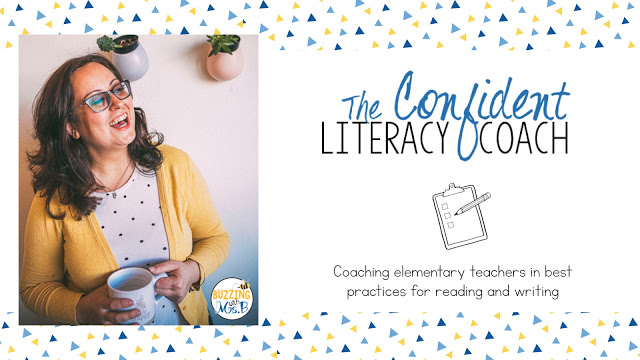What is neurodiversity and how can we support neurodivergent teachers?
On this episode of The Coaching Podcast, Jillian Starr joins me to talk about coaching neurodivergent teachers. She shares her experience and perspective as a neurodivergent teacher with us.
What does neurodiversity mean?
During the episode, I ask Jillian to define neurodiversity. She explains that people think and learn in different ways. The term neurodiversity is used to highlight the variety in the human brain. It’s a biological reality like any other human variation. It includes things like ADHD, sensory processing issues, and dyslexia.
Jillian goes on to say that neurodivergent has shifted from a term of identifying to more of a movement. It signifies a desire to make environments more inclusive and rejects the idea that neurodivergent people need to be fixed or cured. It is an approach to learning and an understanding that our classrooms should be inclusive of neurological differences.
Neurodiverse Educators
Jillian talks to us about what it’s like to be neurodivergent and how instructional coaches can best support work with neurodivergent teachers.
Some teachers may not be aware or want to tell their instructional coach that they are neurodivergent. As coaches, we must be thoughtful and make sure we provide services inclusive for all teachers.
Being Neurodivergent
Since Jillian only represents one part of the neurodiverse community, she asked other teachers she knew who are also neurodivergent what they wished people knew about it. Listed below are a few things they all agreed on.
- Neurodivergent people need help breaking down big tasks into smaller, manageable chunks. Jillian and her neurodivergent colleagues agreed they would welcome support to simplify and streamline procedures.
- They need help with day-to-day, mundane tasks that seem easy for other educators.
- Many times the systems given make no sense to the neurodivergent brain. For example, teachers are expected to put information in spreadsheets. The neurodivergent brain may have difficulty understanding how it is supposed to work and may need a different way to view information.
Jillian explains that many neurodivergent teachers had IEPs as students. Being neurodivergent doesn’t disappear when you become an adult and go into the workforce.
As coaches who support teachers, who may be neurodivergent, we need to make sure we provide accommodations. Jillian discusses how this can make or break a relationship and makes the information accessible. Differentiating is beneficial for everyone, but it’s a lifeline for some.
Supporting Neurodivergent Teachers
Jillian and I talk about how the schools, like the rest of the education system, were created by certain people and for certain people. At its foundation, it is not meant to support teachers who are neurodivergent.
Everyone, including the neurodivergent community, needs to feel safe to take learning risks. When coaches work to build relationships with teachers it makes a big difference.
Jillian shares that her coach really tried to get to know her and make her coaching experience work best for her. She always treated her like a professional and that built trust.
During our conversation, Jillian gives us tips for how to support neurodivergent teachers. Many of these practices are the same as what teachers use with neurodivergent students in the classroom.
One of her tips is to streamline procedures. It’s best when teachers can co-create the procedures so that everyone’s needs can be met.
Another tip is offering flexibility around deadlines and offering gentle reminders. This can make neurodivergent teachers feel better supported by their coaches and administrators. Visuals of a timeframe and expectations around when emails or other memos need to be responded are helpful too.
Challenges During PLCs
Jillian shares that PD days present challenge after challenge. Many things that might seem completely irrelevant to others can make the day much harder to get through for her.
Professional development sessions disrupt daily activity. Routine is important because it helps the neurodivergent mind stay focused, present, and alert.
It also takes her out of the normal, happy sensory atmosphere of her classroom People with ADHD often struggle with sensory integration issues and their day can be thrown off by the lighting in the room or the texture of the chair.
Below are several common issues and some accommodations you can make to support your team during PLCs.
- For people with hyperactivity and ADHD, sitting and staying focused for long periods is difficult. Coaches can give teachers the option to stand or move around to help with this.
- Jillian says for people who have dyslexia, font choice in a presentation can make it or break it. Whether it’s a presentation or a reading passage, font types, size, and color matter.
- Create environments that consider the needs of people who are neurodivergent. Try to make the environment and content accessible for everyone.
- Get feedback from teachers about what would make their PD experience better. Her coach used a Google form to collect information from teachers about their preferences.
Everyone learns differently. It is important to come to teaching and coaching with that always at the forefront. As coaches, we need to make things accessible because everyone needs something different from us. If you want to hear all the details about how to support neurodivergent teachers, listen to the entire episode.
Ready to listen? You can listen below with the media player, or search for Buzzing with MS. B: The Coaching Podcast anywhere you listen to podcasts!
Check me out at buzzingwithmsb.com and on Instagram @buzzingwithmsb.
Podcast produced by Fernie Ceniceros of Crowd & Town Creative


